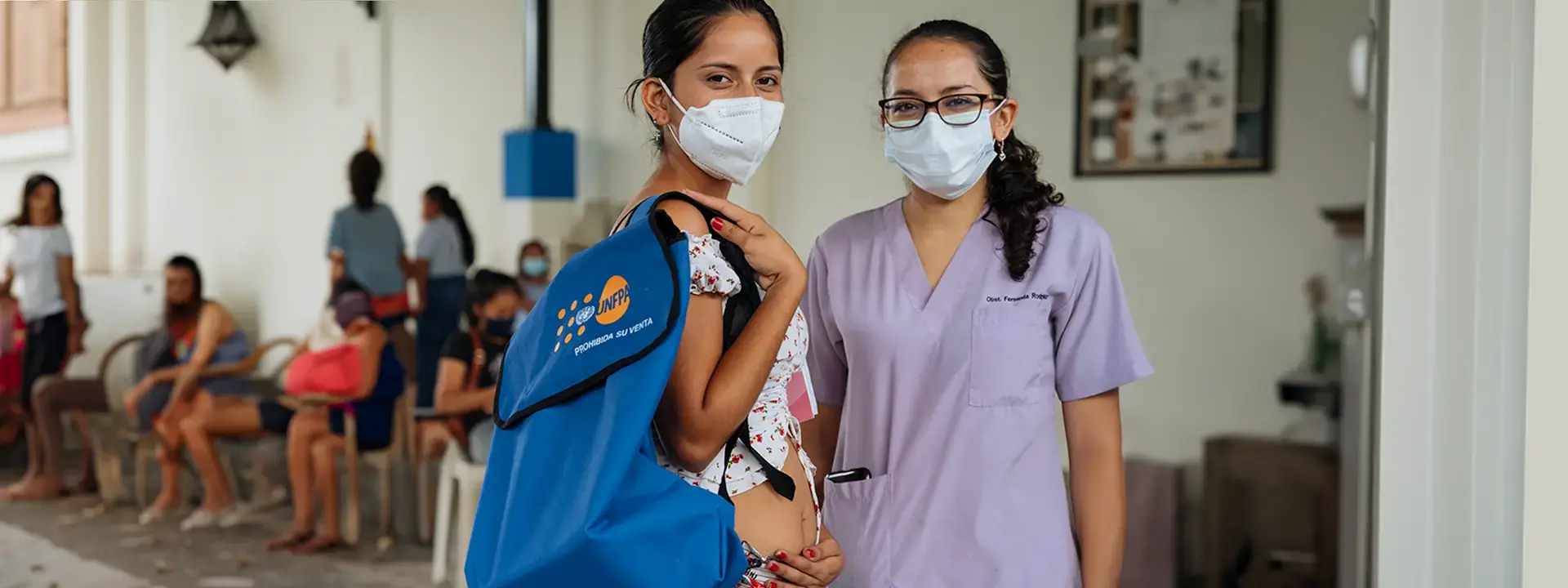In humanitarian situations, UNFPA prioritizes actions to improve and give continuity to sexual and reproductive health needs and the prevention of gender-based violence, in order to improve the health, safety and well-being of affected people and those most at risk: women, adolescents, children, indigenous people, LGBTIQ+ people of African descent, people with disabilities, among others.
The strategies are aimed at:
- Improving access to and continuity of essential sexual and reproductive health services and comprehensive response to gender-based violence.
- Preventing and responding to gender-based violence through case management, psychosocial support and facilitating access to multi-sectoral response services.
- Including the populations of young people in risk management processes and community surveillance strategies.
- Producing data and population analysis needed to reach the most vulnerable people.
- Coordinating and cooperating with national and local actors in the multisectoral and comprehensive response in emergency and humanitarian response contexts.
RELEVANT MILESTONES

- Technical assistance for the elaboration of the Manual on Sexual and Reproductive Health in Emergency Situations.
- The capacities of health personnel and protection services have been strengthened for comprehensive sexual and reproductive health response, counseling and case management in gender-based violence in emergencies.
- Delivery of sexual and reproductive health kits and protective equipment for the personnel of prioritized units of the Northern Border.
- Community policing networks have been strengthened on the Northern Border to prevent and respond effectively to human rights violations.
- Intercultural and inclusive communication strategies to prevent and promote sexual and reproductive rights and a life free of violence.

UNFPA's work in Ecuador prioritizes actions to strengthen the State's response, as well as to facilitate the continuity of sexual and reproductive health services, including care for survivors of gender-based violence. Kits for pregnant women and dignity kits for Venezuelan migrant and refugee women in highly vulnerable contexts have been delivered. These actions were accompanied by information, counseling on their rights and available services, and referrals to health and protection agencies.


